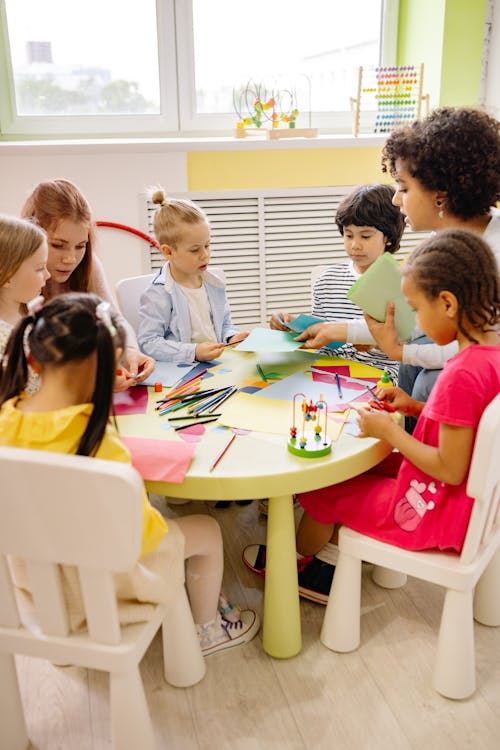Every child’s learning journey is as distinct as their fingerprint—rich with potential, quirks, and moments of surprise. Recognising and nurturing this individuality isn’t just beneficial; it’s essential. Individualised learning is rooted in the understanding that education isn’t one-size-fits-all.

It’s a responsive, thoughtful approach where educators tune into each child’s interests, pace, and personality to shape experiences that truly connect.
If you’re curious about how this approach can be implemented meaningfully in early education, read this article, and you can try this out to see what it looks like in action.
The Concept Of Individualised Learning
Individualised learning in early education means designing educational activities to suit each child’s unique needs, pace, and interests. This approach respects the developmental differences among children and acknowledges that not all learners follow the same path.
Instead of enforcing a single curriculum for all, educators use observations and assessments to tailor experiences that match the child’s current skills and potential for growth.
Why It Matters In The Early Years?
The early years are foundational for a child’s cognitive, social, and emotional development. Individualised learning during this period enhances these domains by providing appropriate challenges, fostering a sense of accomplishment, and creating a secure learning environment.
Early childhood educators who personalise their interactions help children feel seen and understood, encouraging engagement and curiosity.
The Benefits Of Individualised Learning
Boosting Cognitive Growth
What is the importance of individualised learning in early education regarding brain development? Tailoring educational content to suit a child’s cognitive level helps them grasp concepts more effectively.
It prevents boredom from overly simple tasks and frustration from too advanced material. Individualised learning provides the right level of challenge and promotes better problem-solving, memory, and reasoning skills.
Enhancing Emotional Security
Children flourish when they feel safe and valued. When educators individualise learning, they show genuine interest in each child’s development. This builds emotional bonds and fosters self-confidence. Children are more likely to take initiative and explore new ideas when supported in a personalised environment.
Supporting Diverse Learning Styles
Not every child learns in the same way. Some respond well to visual aids, while others prefer hands-on experiences or auditory instructions. Individualised learning makes it possible to address these preferences.
For example, a child who enjoys building can learn maths through block play, while another might understand the same concept via songs and rhythms.
Implementing Individualised Learning In Practice
Observing And Understanding The Child
The first step in individualising learning is observation. Educators closely watch children during free play and structured activities to identify interests, strengths, and areas where they may need more support. These insights inform future learning experiences that align with each child’s developmental trajectory.
Setting Personalised Goals
Setting goals that reflect each child’s pace is key. These are not about reaching standardised benchmarks but progressing meaningfully from where the child currently stands. Personalised goals help measure progress in a way that encourages growth without pressure.
Using Flexible Routines
What is the importance of individualised learning in early education if routines are too rigid to adapt? Flexibility in daily schedules allows educators to accommodate children’s rhythms and preferences. Some children may need more transition time between activities, while others benefit from longer periods of focused engagement.
Encouraging Family Collaboration
Families hold valuable insights into a child’s behaviour, culture, and learning style. Educators can refine their understanding and approach by working in partnership with parents. Open communication ensures that learning strategies are consistent across home and school environments.
Individualised Learning For Infants And Toddlers
Early Developmental Sensitivity
Infants and toddlers develop at different rates. Their rapid growth means that what they need at one month may differ dramatically by the next. Individualised care practices provide learning opportunities that align with their interests and capabilities, laying the foundation for later academic success.
Building Relationships Through Care
Individualisation in early education also means consistent caregiving. Children thrive when they can form secure attachments with familiar adults. Knowing a child well allows educators to anticipate needs and provide timely support, essential for emotional and behavioural regulation.
Inclusive Practices For All Learners
Personalised approaches benefit children with additional needs, such as those with disabilities or dual language learners. Educators can create Individualised Family Service Plans or support strategies that address specific goals.
These efforts ensure equal access to quality education and promote inclusive learning environments.
Overcoming Common Challenges
Time And Resource Constraints
Individualising learning takes time. It involves planning, observation, and continuous adjustment. Centres must ensure educators have manageable class sizes and access to appropriate resources. Investing in support staff and learning materials is critical for success.
Professional Development And Training
Not all educators are initially equipped to practise individualised learning. Ongoing professional development is vital. Training helps staff learn how to assess development, set personalised goals, and incorporate inclusive strategies into everyday routines.
Balancing Group And Individual Needs
While individualised learning focuses on the child, it doesn’t exclude group activities. Children also need to learn cooperation, turn-taking, and conflict resolution. Skilled educators find ways to blend personalised attention with collective learning opportunities, ensuring a well-rounded experience.
Long-Term Impact Of Individualised Learning
Improved School Readiness
Children who receive individualised attention in their early years are better prepared for school. They demonstrate improved language skills, emotional regulation, and social competence, which make the transition to structured schooling smoother and more successful.
Fostering A Lifelong Love Of Learning
What is the importance of individualised learning in early education for lifelong learning habits? Children who feel successful and understood early develop a positive attitude towards education. This mindset encourages curiosity, resilience, and ongoing self-improvement throughout their academic journey.
Conclusion
Individualised learning is not merely a teaching method; it’s a way of respecting each child as a unique learner.
By adapting educational approaches to individual needs, early education settings can create nurturing, effective, and inclusive environments. Individualised learning can lead children to lifelong success with the right support, training, and commitment.
Frequently Asked Questions
How Does Individualised Learning Benefit Children With Different Learning Styles?
Individualised learning allows educators to tailor teaching methods for visual, auditory, or kinaesthetic learners.
This ensures that each child can engage with content in a way that makes sense to them, boosting understanding and retention. It creates a more inclusive classroom where all children feel supported and capable of success.
Is Individualised Learning Only Suitable For Children With Special Needs?
Individualised learning benefits all children, not just those with special needs. It recognises that every child develops independently and has unique interests and strengths. Educators can help every child reach their full potential by catering to these differences.
Can Individualised Learning Be Implemented In Group Settings?
Yes, with thoughtful planning, individualised learning can thrive in group environments. Educators can offer differentiated tasks, rotate small-group activities, and personalise support within larger classroom routines. This approach balances individual attention with the benefits of social learning.
